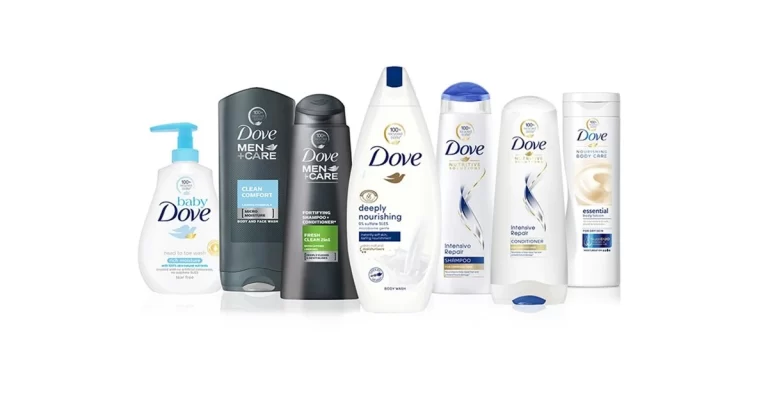Clorox, a leading multinational company known for its cleaning and household products, has a strong reputation built on decades of delivering trusted, effective solutions for consumers worldwide. With a product portfolio that includes brands like Clorox bleach, Pine-Sol, and Glad, Clorox has historically dominated the traditional household cleaning market. However, in response to evolving consumer preferences and growing environmental concerns, Clorox has strategically pivoted to expand into the natural and organic products sector.
Market Opportunity: The Rise of Natural and Organic Products
The global market for natural and organic products has witnessed exponential growth in recent years, driven by increasing consumer awareness of health, wellness, and environmental sustainability. Consumers are seeking products with cleaner ingredients, minimal environmental impact, and transparent sourcing. For Clorox, this represents a significant opportunity to diversify its product offerings and align with the evolving preferences of its customer base.
Strategic Approach: Entry into Natural and Organic Products
Clorox’s entry into the natural and organic products market began with the acquisition of Burt’s Bees in 2007, a brand known for its natural personal care products. This acquisition marked a significant strategic shift, allowing Clorox to leverage Burt’s Bees’ expertise in natural ingredients and sustainability practices. This move was part of Clorox’s broader strategy to position itself as a leader in the natural and organic segment while staying true to its core mission of delivering effective products that promote healthy homes.
Expansion through Green Works Line
Clorox further expanded its portfolio by introducing the Green Works line, a range of cleaning products made with natural, plant-based ingredients. These products were designed to meet the same high standards of performance as traditional Clorox products while offering a safer, more sustainable alternative for eco-conscious consumers.
Challenges Faced by Clorox
Despite the clear market opportunity, Clorox faced several challenges in its expansion into natural and organic products:
- Brand Perception: Clorox’s long-standing association with chemical-based products initially made it difficult to gain credibility in the natural and organic segment. The company had to invest significantly in marketing to shift consumer perceptions and build trust in its natural offerings.
- Supply Chain Adjustments: Transitioning to natural ingredients required Clorox to overhaul parts of its supply chain. Sourcing high-quality, sustainable ingredients at scale posed logistical and cost-related challenges.
- Competition: The natural and organic products market is highly competitive, with numerous established players like Seventh Generation, Method, and Mrs. Meyer’s Clean Day. Clorox needed to differentiate its products and communicate its unique value proposition to stand out in the crowded market.
Outcomes and Impact
Clorox has set ambitious sustainability goals, including achieving 100% recyclable, reusable, or compostable packaging by 2025 and maintaining 100% renewable electricity usage for its U.S. and Canadian operations. These efforts are part of Clorox’s broader commitment to reducing its environmental impact and enhancing its product offerings with sustainability-driven innovations. By integrating environmental considerations into its core business strategy, Clorox not only meets regulatory requirements but also aligns with consumer expectations for greener products. This approach has helped the company improve its EBIT margin and build a more resilient, future-focused brand.
Clorox’s strategic expansion into natural and organic products has been largely successful, with the company reporting strong growth in its Burt’s Bees brand and the Green Works line. Burt’s Bees has expanded its product offerings beyond lip care to include skincare, haircare, and baby care products, all of which emphasize natural ingredients and sustainable packaging.
Additionally, Clorox’s natural product lines have contributed positively to the company’s financial performance. The natural segment has not only helped Clorox diversify its revenue streams but also attracted a new, younger demographic of consumers who prioritize eco-friendly and health-conscious products.
Future Directions
Clorox continues to invest in the natural and organic products sector as part of its long-term growth strategy.
Future Initiatives
- Expanding product lines and investing in research and development for innovative natural solutions.
- Enhancing sustainability efforts across the entire supply chain.
- Strengthening digital presence and direct-to-consumer channels to better engage with the target market.
Key Takeaways
- Consumer-Centric Approach: Clorox’s success in expanding into natural and organic products is driven by a keen understanding of evolving consumer preferences for health, wellness, and sustainability.
- Strategic Acquisitions: Acquiring Burt’s Bees allowed Clorox to enter the market with a credible, established brand known for its commitment to natural products.
- Brand Evolution: Clorox’s ability to shift brand perception and build trust in its natural product offerings was crucial to gaining market share in the competitive natural and organic segment.
- Sustainability Commitment: Clorox’s focus on sustainable practices and transparent ingredient sourcing has helped align the company’s values with those of eco-conscious consumers.
Conclusion
Clorox’s expansion into natural and organic products showcases the company’s ability to adapt to market trends and consumer demands while staying true to its core values of delivering high-quality, effective products. By embracing sustainability and innovation, Clorox is well-positioned to continue its growth in the natural and organic products sector, meeting the needs of today’s environmentally conscious consumers.



